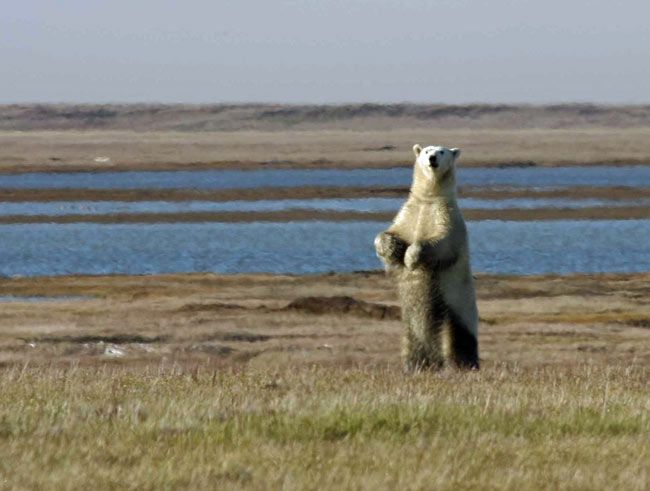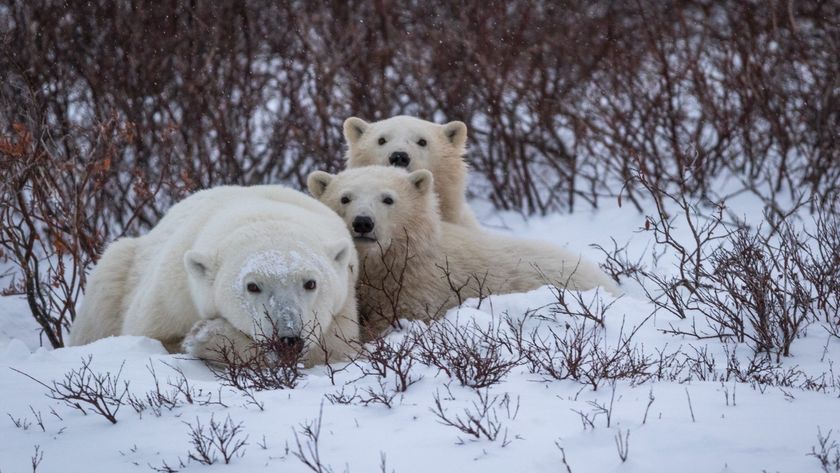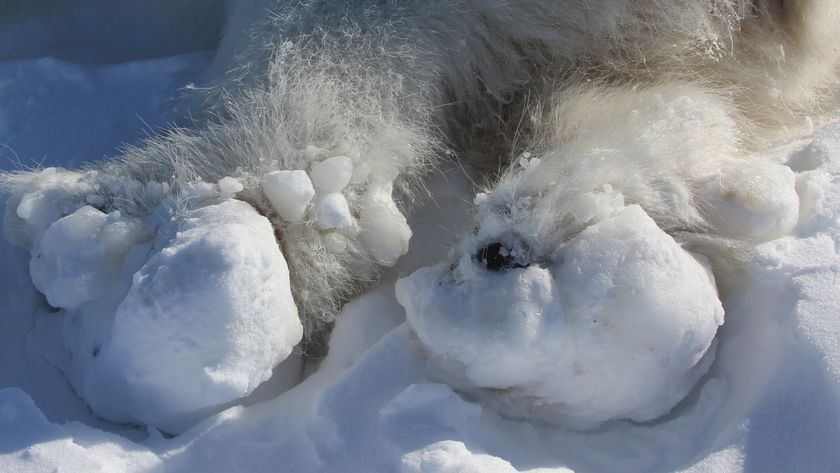Scientists Flee Landlocked Polar Bear at Arctic Camp

Five scientists had to evacuate a remote research camp in northern Alaska last week to escape a new threat: a polar bear stuck on the land because of the warmer global climate. Polar bears normally lumber around out on the Arctic sea ice at this time of year, hunting seals for dinner. But recent warming has kept the ice miles away from shore, so the polar bears are land-locked and unable to reach their prey. Just what their condition is or how dangerous the bears are around humans is unknown, so the scientists decided on July 30 to leave their camp when one was spotted nearby. "We saw the polar bear on our first clear day after several days of poor weather," said Joe Liebezeit, a conservation scientist for the New York-based Wildlife Conservation Society (WCS). "The bear didn't come near us, but the prospect of maintaining a round-the-clock vigil while trying to do our surveys had us concerned." The WCS team was on the shorelines north of Teshekpuk Lake on the Beaufort Sea studying the feeding of shorebirds before their southward migrations. These shorelines have experienced dramatic erosion as the climate has warmed. The scientists were working to understand how this erosion affects the ability of the shorebirds to get enough food energy before they migrated to Asia, South America and other distant sites. "It is ironic that our efforts to understand how climate change is affecting wildlife were disrupted by the top Arctic predator displaced by climate," said Steve Zack, also of the WCS. Polar bears were recently added to the Endangered Species List because of the potential danger that global warming poses to their habitat. Arctic sea ice extent hit a record low last summer; average sea ice extent at the end of the summer was 1.65 million square miles (4.28 million square kilometers), almost 30 percent lower than the previous record low.
- Video: Melting Sea Ice Seen From Orbit
- Images: Endangered and Threatened Wildlife
- North vs. South Poles: 10 Wild Difference
Sign up for the Live Science daily newsletter now
Get the world’s most fascinating discoveries delivered straight to your inbox.












